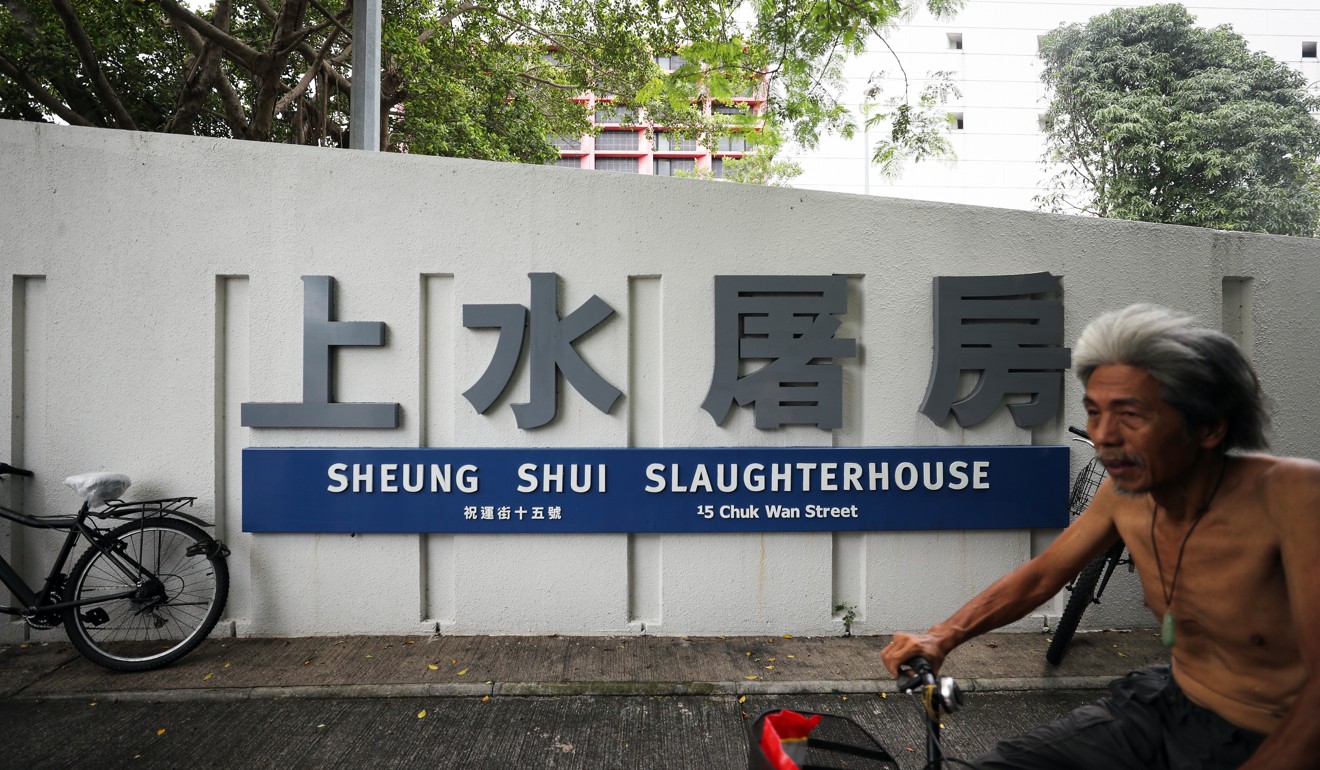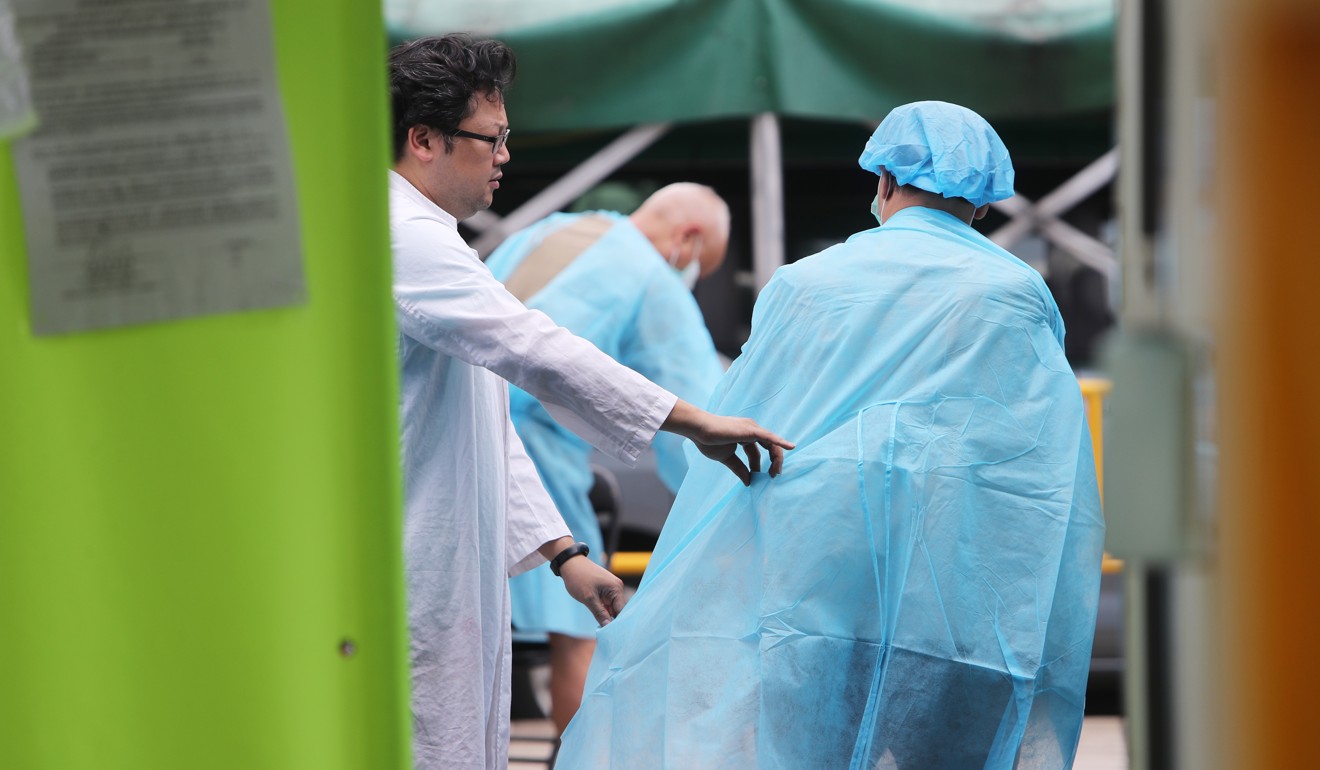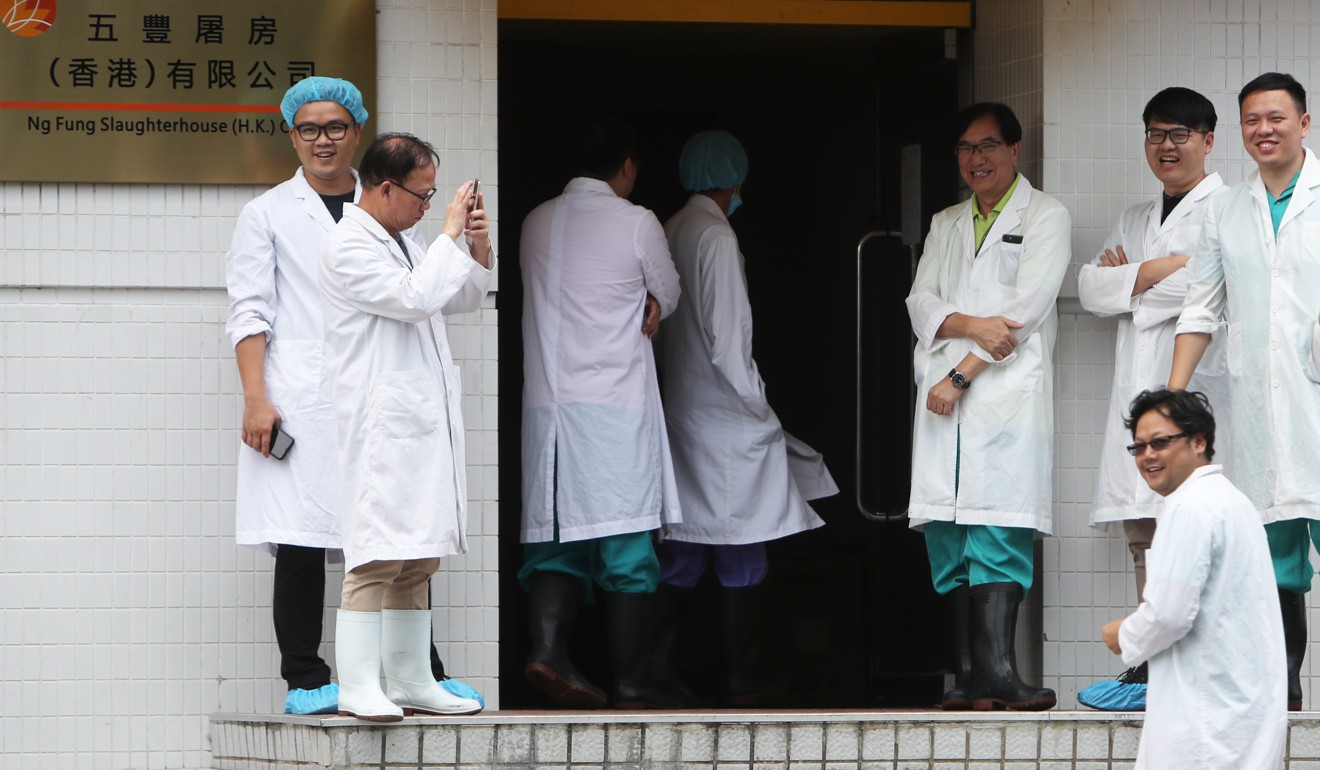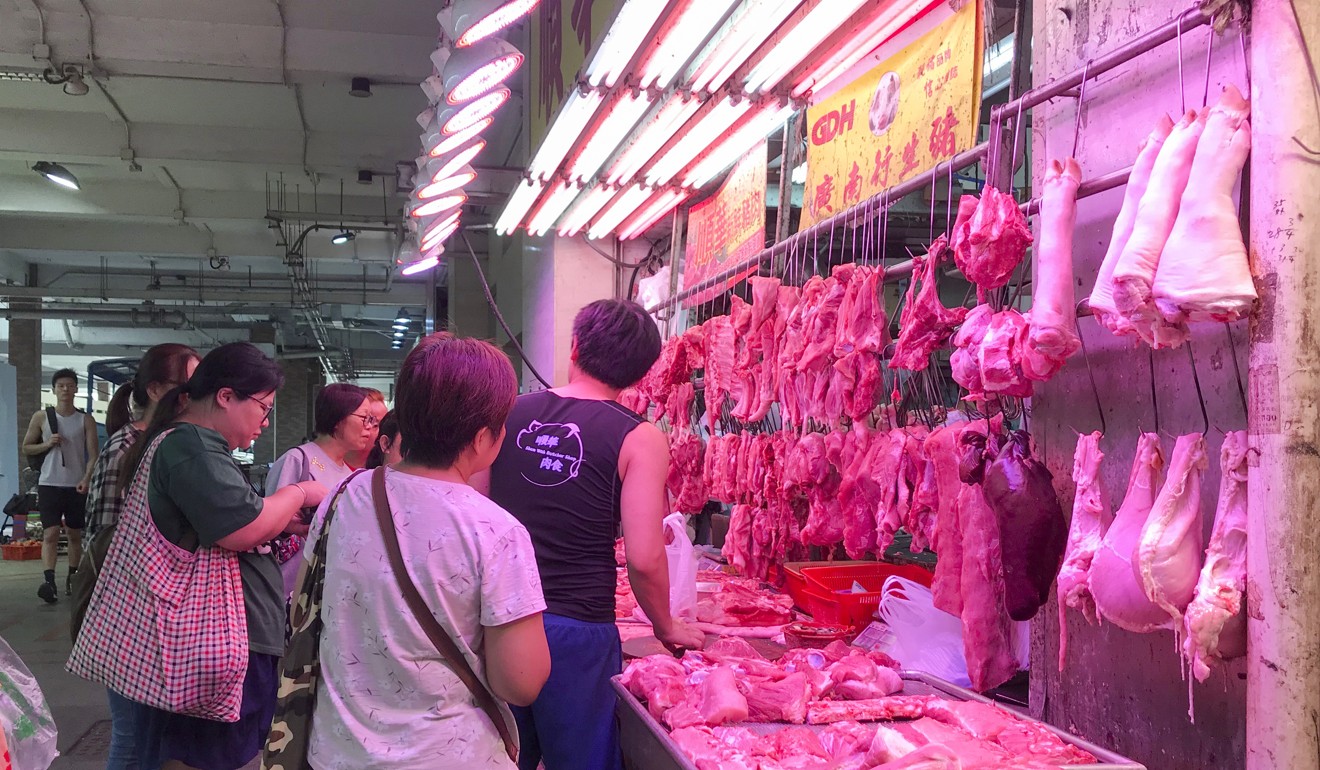
Live pig imports to Hong Kong suspended after African swine fever case detected – but pork traders ask for cull to be halted
- Suspension of pork supplies has sent prices at markets soaring, with many vendors shutting up shop
- Government orders cull of 6,000 pigs at Sheung Shui slaughterhouse on Friday but pork industry representatives say it is unnecessary
Pork traders said on Saturday evening they would stand guard overnight to prevent officials from entering the city’s main slaughterhouse to cull some 6,000 pigs which they believed were safe for consumption.
The transfer of at least 3,500 pigs, which were to be processed at the city’s three slaughterhouses, was halted temporarily, while the closure of the two main abattoirs meant there were no local pigs supplied to the market either.
Secretary for Food and Health Sophia Chan Siu-chee said the suspension was part of an established mechanism.
“We have already discussed this with mainland authorities … the importing of live pigs will be automatically stopped at the sites found with any confirmed cases of African swine fever,” Chan said.
There were no pigs supplied to the city’s slaughterhouses on Saturday, according to the Food and Environmental Hygiene Department. No pigs, local or from the mainland, would be supplied on Sunday either, according to the department’s official forecast.

Officials on Friday ordered the culling of at least 6,000 pigs at the government-owned Sheung Shui slaughterhouse – which supplies 80 per cent of the city’s pork – so the site could be thoroughly disinfected. But the cull was suspended after pork traders protested against the move, urging more tests on the batch.
Hong Kong pigs ‘should be slaughtered separately from mainland livestock’
The order followed the revelation on Friday that a pig imported from Zhanjiang in Guangdong province was infected with the virus.
The batch with the sick pig had already been released to the market, but posed no health risk to humans and thoroughly cooked pork is safe for consumption.
The government did not make clear how long operations at the Sheung Shui slaughterhouse would be suspended for, or when mainland authorities would resume imports of fresh pork.

The Tsuen Wan slaughterhouse, which is privately owned, also decided to temporarily stop operations after the news broke, according to lawmaker Steven Ho Chun-yin, who represents the agriculture and fisheries sector.
But pork traders on Saturday lashed out at the government for ordering the pig cull, asking officials to spare the livestock unless they had tested positive for African swine fever.
“This batch of pigs was certified safe both by mainland and Hong Kong customs authorities, while the infected pig came from the batch on May 2 – it’s now already May 11. I don’t see why we need to kill them,” said Hui Wai-kin, secretary general of the Pork Traders General Association of Hong Kong.
Hui urged the government to carry out a quick test, which would only take four hours, instead of “blindly killing innocent pigs”.
Hui said the industry would suffer losses of up to HK$18 million (US$2.3 million), based on an estimate that each pig cost HK$3,000.

Chan said the government had agreed to compensate traders based on market prices.
A pork industry representative said traders would “protect their property” and stand guard at the slaughterhouse overnight, unless the government could prove the batch was infected.
The representative also said they were prepared to launch a legal challenge against the government’s decision, after talks on how to handle the 6,000 pigs broke down late on Saturday.
Undersecretary for Food and Health Dr Chui Tak-yi said officials were willing to continue to talk with traders, but said the cull was a “strict and resolute” necessary measure to prevent the disease from spreading or becoming endemic.
The sudden shortage forced pork prices to surge, while some stalls had to close during the weekend.
Two out of six pork stalls at the wet market in Mei Foo were closed, while the shutters were down at the only two fresh pork vendors at the Bowrington Road wet market in Causeway Bay.
Those that were open were selling meat left over from the day before.
African swine fever edges closer to Hong Kong putting authorities on alert
A manager at a butcher’s shop in Mei Foo said he had increased prices by 40 per cent, after having to settle for buying eight pigs from the Tsuen Wan slaughterhouse on Friday instead of his usual order of a dozen from Sheung Shui.
“We don’t really have a choice. If the stock becomes more expensive at source we have to push up the prices for our customers too,” said the manager, who asked to remain anonymous.
The store would have to close on Sunday as they were unable to buy pork from the Tsuen Wan abattoir.

“I’m not too worried, I just hope the government can deal with this as quickly as possible so we can get back to work,” he said.
Housewife Nerisar Yan, who had bought pork at the Mei Foo wet market, said prices were up by at least 20 per cent, to about HK$52 per catty, or about 600 grams.
“It’s so expensive, but I don’t really have a choice. My daughter just gave birth and she can’t really eat beef at the moment. I guess now we’ll just have to go for frozen meat,” Yan said.
African swine fever spreads to one of China’s biggest pig-farming regions
Another buyer, who had rushed to stock up on pork, said: “This is a big problem. Any respectable Chinese household needs pork bone to make soup at least twice a week. What are we going to do without any?”
In December, the city introduced new safety measures in response to the virus’ spread across mainland China, including stricter rules on culling livestock and considering a faster turnover of livestock at the government-run slaughterhouse.
Also in December, 20 mainland Chinese pig farms halted supplies to Hong Kong as the fever swept the mainland, with at least 92 outbreaks of the viral infection reported.

